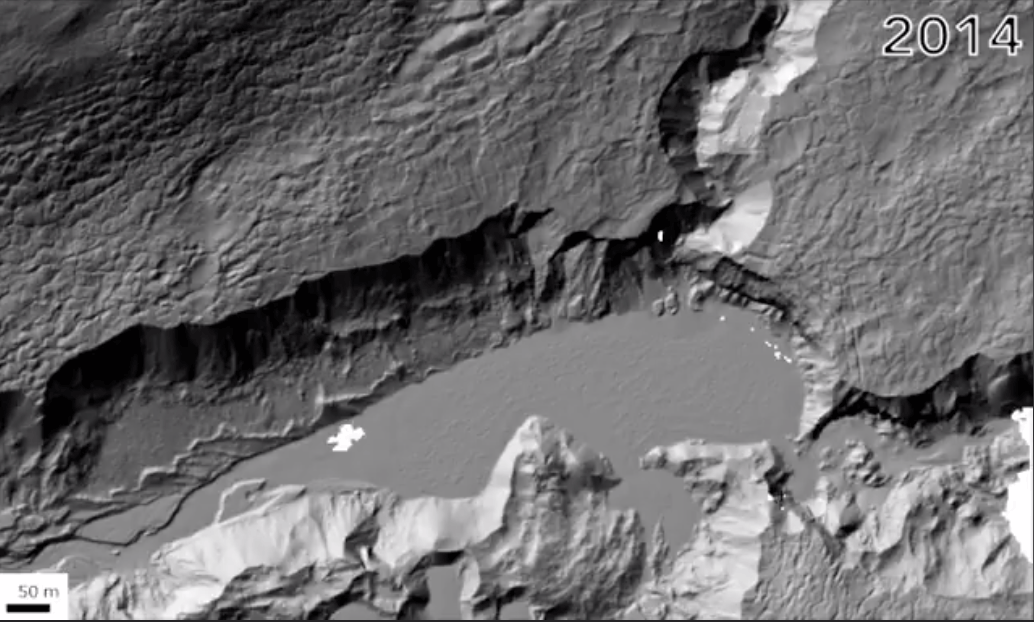 Rapid, Widespread Changes May be Coming to Antarctica's Dry ValleysOctober 10, 2018
National Science Foundation Images: Joseph Levy / Colgate University Antarctica's McMurdo Dry Valleys have undergone changes over the past decade and the recent discovery of thawing permafrost, thinning glaciers and melting ground ice by an NSF-funded research team are signs that rapid and widespread change could be on the horizon, scientists say. Led by Andrew Fountain, a geology professor in Portland State University's College of Liberal Arts and Sciences, the researchers used an airborne laser scanner, or lidar, to measure the surface elevations of glaciers, soils and ice-covered lakes in Antarctica's largest exposed land region. The team then compared the elevations to similar measurements made in 2001 by a different project. "The valleys have been considered almost timeless, yet here we see some changes that would be considered rapid even in more temperate climates," Fountain said. Their findings were reported Sept. 13 in the journal Geomorphology. "Millions of cubic meters of buried ice have melted in the last decade," said Joseph Levy, the paper's lead author and an assistant professor of geology at Colgate University. "It's unprecedented change over the historic period of #Antarctica and perhaps since the end of the last ice age. If it keeps up, it could remove the last ice deposits from some valleys in about five hundred years.” Read more in a Portland State press release here: https://www.pdx.edu/liberal-arts-sciences/news/rapid-widespread-changes-may-be-coming-antarcticas-dry-valleys-study-finds
|



For USAP Participants |
For The Public |
For Researchers and EducatorsContact UsU.S. National Science FoundationOffice of Polar Programs Geosciences Directorate 2415 Eisenhower Avenue, Suite W7100 Alexandria, VA 22314 Sign up for the NSF Office of Polar Programs newsletter and events. Feedback Form |
